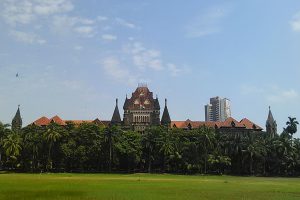Bombay High Court: Delivering its verdict in a case involving the denial of pension by the employers of Bank of Baroda to one of its employees who retired after years of unblemished service, the Bench comprising of Anoop V. Mohta and G.S. Kulkarni, JJ. held that denial of the right to pension of the employees can be made only in consideration with the facts and circumstances of the case and that such restrictions must pass the test of reasonableness, fairness and unarbitrariness.
In this case, the petitioner who retired after almost four decades of unblemished service in 2006 from a public sector bank, the respondent, which is covered under ‘State’ in accordance with Article 12 of the Constitution, sought to enforce the payment of the benefits pension and a loan scheme due to him, of which he had been deprived on grounds of the statutory time-limit expiring before he applied under the schemes. Since the notification itself had reached the petitioner after the stipulated date, and also because the right to receive pension is a right not a gratuitous payment, therefore, the petitioner claimed violation of his fundamental rights under Articles 14 and 21 of the Constitution of India.
The Court, on analysing the merits of the case held that the respondent arbitrarily disregarded the facts frustrating the whole purpose and object of the pension facility being made available to such retired employees The Court observed that the authorities must not be unmindful that pension is an entitlement of the employee for the past services rendered and not some charity. The Court further held that in light of the circumstances and facts of the case, this approach fails the test of reasonableness, fairness and non-arbitrariness and is violative of Articles 14 and 21 and shall therefore be rejected by the Court. [Ramesh Gajanan Nigudkar v. Bank of Baroda, 2016 SCC OnLine Bom 5287, decided on 18.08.2016]

